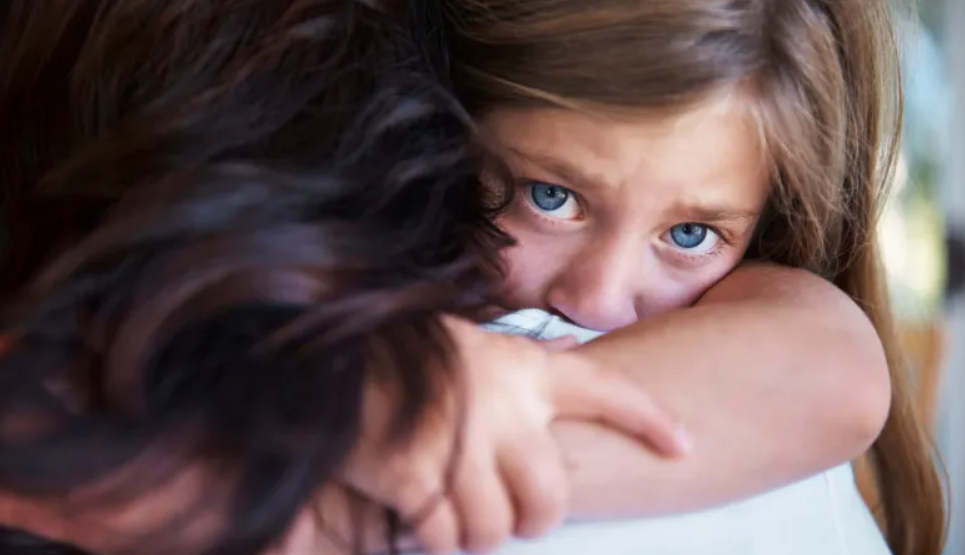
Anxiety Disorders in children
Anxiety can show itself as physical changes, as thoughts and feelings or be observed in behaviour.
Symptoms
1. Physical Symptoms of Anxiety
- Dizziness and feeling lightheaded
- Hot and cold flushes
- Stomach complaints, nausea and vomiting
- Headaches
- Difficulties sleeping
- Easily fatigued
- Loss of appetite
2. Cognitive Symptoms of Anxiety
- Obsessive worrying about illness or death of self or loved one
- Fear that things will go wrong
- Perfectionism
- Social shyness and embarrassment
- Feeling tense and on edge
3. Behavioural Symptoms of Anxiety
- Obsessive behaviours (see OCD)
- Hair pulling, skin picking
- Clinginess
- Difficulties concentrating
- Irritability and angry outbursts
Causes of anxiety
Family history
If either biological parent has an anxiety disorder, either now or in the past, your child will be more likely to develop one as well. The age parental anxiety first started also has an impact on the likelihood of your child developing anxiety and the earlier you developed anxiety, the more likely your child will be to develop an anxiety disorder. Part of this may be due to genetic causes but it may also be due in part to upbringing. Children will often learn anxiety, fear or avoidance from anxious parents.
Brain Biology
The structure of your child’s brain and how the chemical reactions function in each individual are also thought to play a role in whether or not a child will develop an anxiety disorder. Of particular interest is the part of the brain called the amygdala. The amygdala is responsible for our flight or fight response and studies have shown that children with an anxiety disorder often have hypersensitivity in this area.
Personality
There are numerous theories that different personality types are more likely to suffer with anxiety than others, for instance those children who are emotionally sensitive or shy are more at risk. However, some theorists would argue that emotionally sensitive children often learn a resilience about the world, that then protects them from developing conditions such as depression or anxiety later on in life, so there are no set rules.
Childhood experiences
Many studies have shown, perhaps unsurprisingly, that children who face adversity or difficult experiences in their childhood are more likely to go on to develop a mental health condition such as anxiety or depression as adults.
Experiences such as acrimonious divorces, childhood abuse, trauma and death of a parent can deeply impact a child and leave them with difficult emotions that may impact on the rest of their lives. Seeking help and support early has been shown to be helpful in allowing children to work through difficult emotions and prevent the onset of further complications.
Types of child and Adolescent Anxiety Disorders
- Generalised anxiety disorder
- Depression and anxiety
- Obsessive Compulsive Disorder
- Phobias
- Panic attacks
- Social anxiety
- Separation anxiety
- PTSD
Treatment for Anxiety Disorders
Research has shown that talking therapies such as Cognitive Behavioural Therapy (CBT) can be hugely effective for children with anxiety disorders, teaching them active coping strategies, distraction techniques and problem focused solutions.
EMDR (eye movement desensitisation and reprocessing) is a type of therapy that involves using a gentle visual stimulus, for instance moving a pen from side to side in front of the patient’s eyes, whilst asking the patient to focus on the distressing thought. EMDR helps the brain to re-programme itself and is a recognised treatment option for anxiety disorders, particularly effective with PTSD.
Medication for Anxiety Disorders
Sometimes medication will be recommended. Medications such as antidepressants have been successfully used by young people to overcome their anxiety disorders.
Often a talking therapy will also be recommended, and it has repeatedly been shown that medication taken alongside a talking therapy can be more effective. Whilst many parents are understandably concerned about their child taking antidepressants, there are pros and cons to the approach. Antidepressants can be highly effective at helping children overcome the often debilitating symptoms of an anxiety disorder, so with careful management, can be very useful.